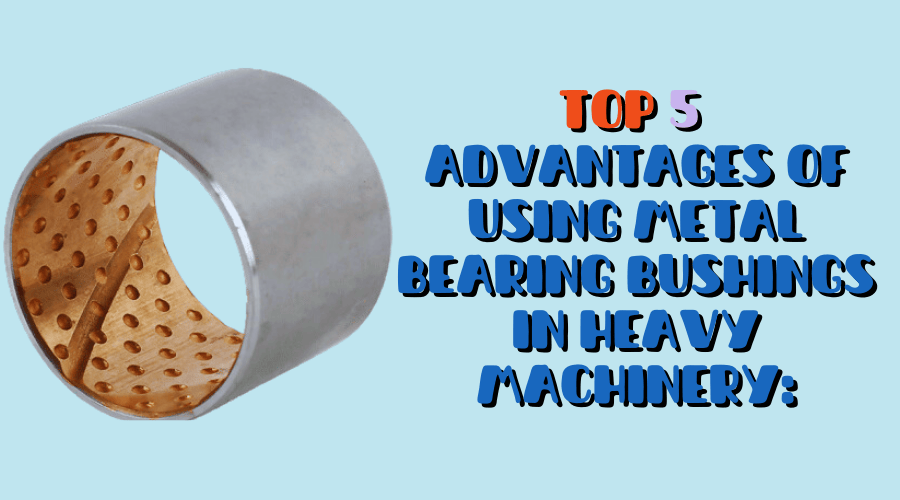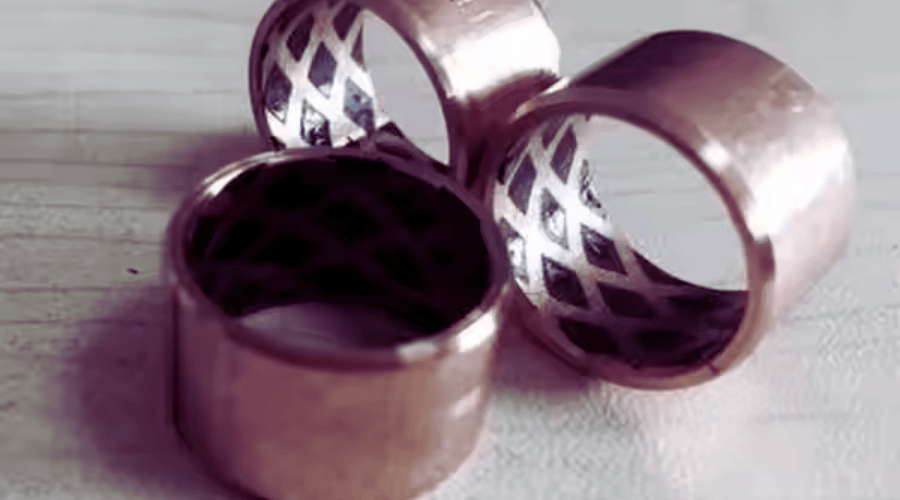
Oct 25,2024
Metal-bearing bushings are fundamental components in heavy machinery, serving as the silent workhorses that keep equipment running smoothly and efficiently. These engineered components are crucial in reducing friction, managing wear, and ensuring optimal performance across various industrial applications. Let's explore the five key advantages of metal-bearing bushings in heavy machinery operations.
Modern metal bearing bushings are crafted from sophisticated materials, including phosphor bronze, hardened steel, and specialized alloy composites. These materials are specially selected for their exceptional strength-to-weight ratio and ability to maintain structural integrity under extreme conditions. The molecular structure of these metals provides superior resistance to compression and deformation, ensuring consistent performance even under heavy loads.
The inherent properties of metal bushings, particularly their hardness and wear resistance, significantly reduce material degradation during operation. This characteristic is precious in applications with frequent start-stop cycles or continuous operation. The reduced wear rate translates to fewer replacement needs and extended service intervals, making them ideal for heavy machinery where reliability is paramount.
Metal-bearing bushings excel in dampening vibrations and minimizing operational noise through their precise engineering and material properties. The microscopic surface finish of quality metal bushings creates an optimal interface between moving parts, reducing friction-induced noise and vibration. This smooth operation is achieved through careful material selection and precision manufacturing processes that ensure perfect dimensional accuracy.
In noise-sensitive environments like urban construction sites or indoor manufacturing facilities, metal bushings help maintain compliance with workplace noise regulations. Their ability to reduce mechanical noise contributes to a safer and more comfortable working environment, which is particularly important in enclosed spaces where sound reflection can amplify machinery noise.
The durability of metal-bearing bushings directly translates to significant cost savings through reduced maintenance needs. Unlike plastic or composite alternatives, metal bushings can operate for extended periods without replacement, minimizing parts and labor costs. This reliability is particularly valuable in heavy machinery, where downtime can be extremely costly.

While the initial cost might be higher than alternative materials, the extended service life of metal bushings provides a superior return on investment. The reduced frequency of replacements and maintenance interventions results in lower total ownership costs over the machinery's lifetime. Additionally, their durability helps prevent premature wear in other machine components, further extending equipment life.
Modern metal bushings incorporate sophisticated corrosion-resistant materials and treatments. Bronze alloys, for example, offer natural resistance to oxidation, while specialized coatings provide additional protection against chemical exposure. These protective features ensure consistent performance even in challenging environmental conditions.
Metal bushings' corrosion resistance makes them ideal for equipment operating in harsh environments. Whether exposed to saltwater spray in marine applications, chemical processes in manufacturing, or dust and debris in mining operations, correctly specified metal bushings maintain their structural integrity and performance characteristics.
Metal bearing bushings excel at managing heavy loads by distributing forces evenly across their surface area. This characteristic is enhanced by precise manufacturing tolerances and material selection, which ensure optimal contact patterns under load. The superior load distribution prevents localized stress concentrations that could lead to premature failure.
Metal bushings demonstrate exceptional load-bearing capabilities in applications like earth-moving equipment, industrial presses, and mining machinery. Their potential to handle both static and dynamic loads while maintaining dimensional stability makes them essential in heavy machinery, where reliability under extreme conditions is non-negotiable.
Metal-bearing bushings prove their value through unmatched durability, effective noise reduction, cost efficiency, corrosion resistance, and superior load-bearing capacity. These advantages make them the preferred choice for heavy machinery applications where performance and reliability are critical.
Q: How often should metal-bearing bushings be replaced in heavy machinery?
A: Replacement intervals typically range from 2-5 years, depending on operating conditions and maintenance practices, though many last significantly longer with proper care.
Q: Can metal-bearing bushings be used in high-temperature applications?
A: Certain metal alloys are specifically designed for high-temperature operations, withstanding temperatures up to 800°F (427°C) or higher.
Q: What maintenance do metal-bearing bushings require?
A: Regular lubrication (if not self-lubricating), periodic wear inspection, and proper alignment are the primary maintenance requirements for optimal performance.